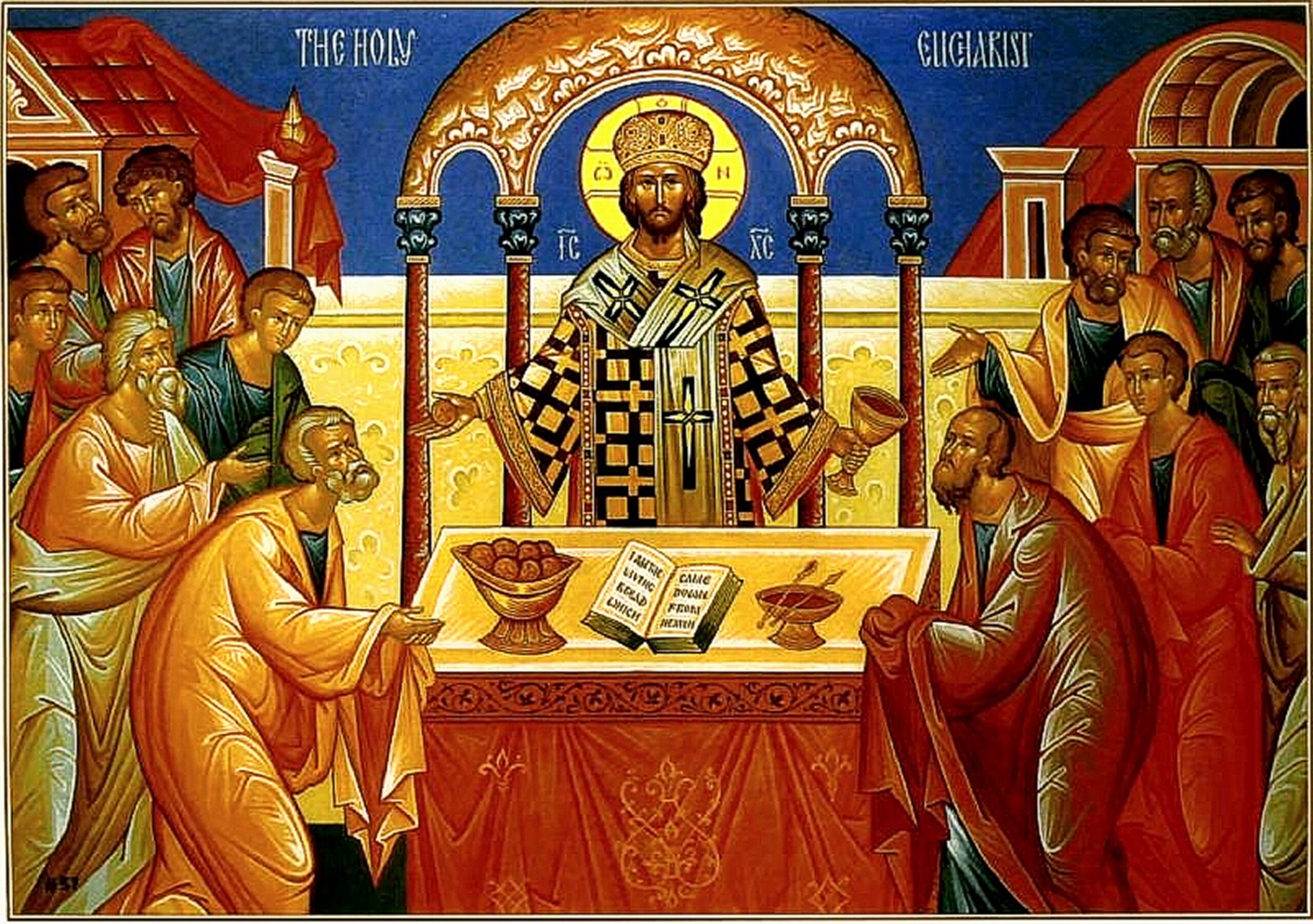For, since through man sin came into the world and through sin death, it pleased Your only begotten Son, who is in Your bosom, God and Father, born of a woman, the holy Theotokos and ever virgin Mary; born under the Law, to condemn sin in His flesh, so that those who died in Adam may be brought to life in Him, Your Christ. He lived in this world, and gave us precepts of salvation. Releasing us from the delusions of idolatry, He guided us to the sure knowledge of You, the true God and Father.
(Divine Liturgy of St. Basil the Great, p. 27)
—
Have this mind among yourselves, which is yours in Christ Jesus, Who, though He was in the form of God, did not count equality with God a thing to be grasped, but emptied Himself, taking the form of a servant, being born in the likeness of men.
Philippians 2:5-7
Jesus was a revolutionary! No, not the kind of revolutionary that wielded a weapon or tried to bring down a government. His teaching was revolutionary, in many ways it went counter to the ways of thinking and behaving in the society of His day. For instance, in Luke 6:35, He said “Love your enemies and do good, and lend, expecting nothing in return.”
In the Parable of the Good Samaritan, in Luke 10: 25-37, He taught that our neighbor was everyone, even our enemy. In the parable, a Jewish man was beaten and robbed and left for dead. A priest and a Levite passed him by on the other side of the road, but it was a Samaritan, a sworn enemy of the Jews, who came to his aid.
The Parable of the Great Banquet is told in Luke 14:16-24, and in the parable the man giving the banquet told his servants to invite everyone, even the poor, lame, blind, maimed and those who were in the highways and hedges of the city to his banquet. The meaning of this parable was that God was inviting everyone to His Kingdom, not just the invited guests, i.e. the chosen people, the Jews, but everyone.
In Matthew 25: 31-46, in the teaching on the last judgment, He taught His disciples that doing for the least of the people was as if we were doing something for God Himself.
In John 4, in an encounter with a Samaritan woman, Jesus did two revolutionary things. First, He was speaking with a woman, and a Samaritan at that. And second, He said that “God is spirit, and those who worship him must worship in spirit and truth.” (John 4:24) In other words, the temple was not the only place where God was, and where He could be worshipped.
Jesus healed a blind man in John 9. And His disciples asked Him, “Rabbi, who sinned, this man or his parents, that he was born blind?” Jesus answered, “It was not that this man sinned, or his parents, but that the works of God might be made manifest in him.” The prevailing thought at the time of Jesus was that the bad things that befell people were a result of their sins, or the sins of their family. Jesus said that neither applied, but that the works of God could be made manifest in any situation.
In Matthew 22, Jesus taught that the entirety of the Jewish Law rested on two commandments, to love God and to love our neighbor. (Matthew 22:39-41)
These are a few of many examples that Jesus gave to us, “precepts of salvation” as St. Basil refers to them. Worshipping in the temple, in some sense, had become idolatry. Because people were taught that God only resided in the temple and then to enter the temple one had to make a requisite offering that would be approved by the priests. It’s easy to see how abuses happened in this system. So that people were not worshipping God, nor were the priests leading people to worship God, but the temple because a place of transaction, rather than a place of worship.
In preaching and teaching as He did, He began to lead the people to a change in thinking of what it meant to serve the Lord and how that was to be done. Perhaps the most revolutionary teaching of Jesus was about the Kingdom of God, that there was a place after this life where the righteous people would go. There was division among the Jewish leaders, the Pharisees and the Sadducees, about whether there was a resurrection in the Lord. Jesus taught about His Kingdom, both as destination and as present reality.
One very important thing to take away from this portion of the prayer is that we can’t forget the precepts of salvation, or be captivated by delusions of idolatry. These things are temptations in the world today, just as they were two thousand years ago. We certainly can lose focus on what is necessary for salvation. There have been innumerable instances where the modern church looks just like the ancient Jewish temple, a place of commerce rather than a place of conversion. In trying to cover the many bases in life, we also sometimes forget the basics. It is in coming to the “sure knowledge” of the “true God and Father,” that we keep ourselves on track for salvation.
It’s ironic that these “revolutionary” teachings of Christ are still revolutionary for the world today, where we are taught to hate our enemies, ignore the least of the people, and blame people for their misfortune. We should remember the words of Christ, “Be merciful, even as your Father is merciful.” (Luke 6:36) This teaching is one of so many that if we followed just this, we are on the path to salvation.
The work of the Son ultimately was to die for our sins. However, before the crucifixion and Resurrection, there was three years of teaching what it means to be a follower of Christ.
